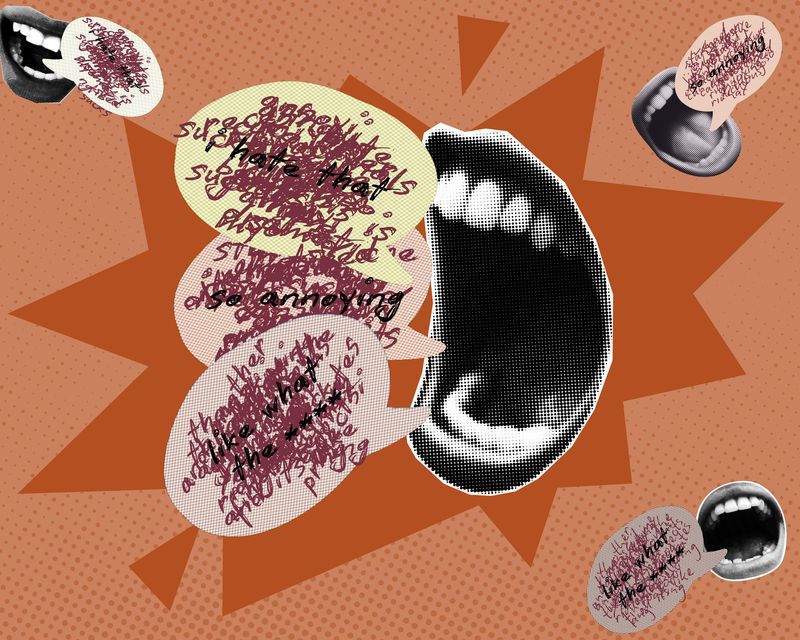We must make an effort to avoid chronic complaining and instead focus on the positive aspects of a situation. Doing so makes life much more enjoyable for us, our acquaintances and our loved ones.

A little complaining is harmless. If complaints are focused on the grievances that accompany growing up and becoming an adult, complaining may be used to let off steam, serve as an attempt at connection, or establish common ground.
However, we must mind a slippery slope: the transition from complaining about minor gripes to perpetual grievances is short and fast.
Neuro Launch describes chronic complaining as a “persistent pattern of focusing on the negative aspects of life, often to the exclusion of any positive experiences.” These complaints tend to be frequent, intense and typically disproportionate to the context.
Individuals may chronically complain for many reasons. This behavior could be adopted from parents or significant figures in someone’s life. Complaints may be a hook to fish for attention or sympathy.
Negative thoughts are essentially ingrained in the minds of chronic complainers due to habitual patterns. They complain that their rose-colored glasses are too tight, cursing them with a skewed perception of reality.
Complaining does not deliver a sense of release or resolution. Instead, it invites negative energy to ruminate inside, triggering psychic and physical tension. Psychosomatic symptoms such as headaches, backaches or sleeplessness can also happen.
This tension spurs stress, which suppresses immune function and makes individuals more susceptible to illness. There is a positive correlation between chronic complaining and lack of motivation, dampening one’s energy, ambition and creativity.
The complainer’s personal and professional relationships are also at fault. Prolonged negativity is draining for the family members and friends, who will inevitably associate adverse emotions with the person complaining. Complaining in a work setting depletes morale and productivity, vastly hindering performance.
“Over-complaining rubs off on the people around you and you attract what you put out,” FSU marketing major Kiana Valett said to the FSView.
The act of complaining forms a feedback loop. Complaints regard the past; therefore, complaining is a form of remembering accompanied by negativity.
Whenever we recall a memory, either voluntarily or involuntarily, our brains re-encode the emotional charge. The Mood Congruence Effect explains how complaining re-encodes the memory to be more negative than before, catalyzing future involuntary memories of other negatively charged events and increasing the likelihood that the experience of remembering will be even more negative.
Despite the harrowing and long-term effects of complaining, this behavior may be used for beneficial purposes, such as emotional processing, reaching out for support, or motivation for change. Additionally, complaining can manifest as speaking up for oneself, such as addressing poor business service.
“I would say there are downsides to positive speech. I’m someone who doesn’t like to give myself any false confidence, and I like to be realistic. Speaking positively when something isn’t always the case can set you up for failure,” marketing and sports management major Isaac Fleischer said to the FSView.
However, once complaining interweaves with identity, changing one’s ways can be extremely difficult. Shutting off the part of the brain that makes complaints the default response may not be viable, but focusing on positivity and challenging perspectives does wonders.
With Thanksgiving approaching, now is the perfect time to emphasize gratitude. Find joy in the little things and highlight what is right with a situation. Searching for the silver lining elevates one’s quality of life.
For a more concrete approach, take action to address the underlying frustration. Confront the situation, or analyze the emotions associated either through self-reflection or speaking with a confidant.
We possess the power to re-encode the feedback loop and make positivity habitual.
Anna Mammarelli is a Media and Communications major at Florida State University and a Staff Writer for the Views section of the FSView & Florida Flambeau, the student-run, independent online news service for the FSU community. Email our staff at contact@fsview.com.
This article originally appeared on FSU News: Hold your grievances: Chronic complaining distracts from gratitude
Reporting by Anna Mammarelli, Senior Staff Writer, FSView / FSU News
USA TODAY Network via Reuters Connect



